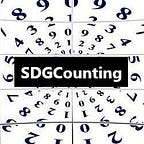Avoiding Data Graveyards- Report & Panel
A deeper dive into the report and panel from Aid Data on data producers and users
Earlier this year, Aid Data, with Development Gateway and other sponsors, delivered the report ‘Avoiding Data Graveyards: Insights from Data Producers & Users in Three Countries”. The report drew from numerous interviews with decision-makers and advisors throughout government, civil-society, and development partners in Honduras, Timor-Leste and Senegal to answer three questions:
- Who produces development data and statistics, for what purposes and for whom?
- What are the technical and political constraints for decision-makers to use development data in their work?
- What can funders and producers do differently to encourage use of data and evidence in decision-making?
The report summarizes the main findings as an interaction of four C’s: content, channel, choice, and consequence;. Aid Data focuses on the first three C’s as building blocks for data use, identifying nine barriers and principles for funders and producers of data to make the right investments and decisions.
The nine barriers and principles correspond to the first three C’s. They cover a range of subjects, including:
Content: Is development data fit-for-purpose?
- Granularity, Accuracy, Integration
Channel: Can prospective users easily find, access, and use the information they need?
- Access, Connectivity, Visibility
Choice: Will the perceived benefits of using data outweigh the costs?
- Credibility, Networks, Incentives
The Executive Summary of the report outlines these nine barriers and principles discovered, with the full report providing more comprehensive background, methodology details, and country-specific findings.
This week, on April 24th, Aid Data hosted a panel discussion on the report, with panelists from development groups and national departments. The panel begins with introductions to the report and to the work of Development Gateway by Samantha Custer, Nancy McGuire Choi, and Shaida Badiee. Tanya Sethi of Aid Data more thoroughly presents the report’s findings and methodology before panel introductions. The panelists were invited to provide insight into how the organizations they represent are currently using data, and how insights from the report could be utilized to avoid ‘data graveyards’ in their work. The panelist included:
- Paul Zeitz, Data Revolution for Sustainable Development Team at the U.S. Department of State
- Hector Corrales, International Development Practitioner with extensive experience in Honduras
- Ruth Minja, National Bureau of Statistics, Tanzania
- Paige Kirby, Development Gateway
- David Saldivar, Oxfam America
Paul Zeitz highlighted the trust that comes with data that is valuable not only for the highest levels of government but also for the day-to-day data collectors and service providers on the ground. The timeliness of the Sustainable Development Goals and their political potential was another theme consistently drawn by panelists. Ruth Minja gave examples of how Tanzania’s Open Portal for data allows data users and producers to fill in gaps that exist.
A number of questions asked during the panel revolved around the topic of investing for data for the SDGs: how to use storytelling to draw investors, how can small pieces of data be “snuck in” to everyday policy in order to spur funding, where can the Global Compact and business fit in, etc. The importance of data collection and usage is a subject well understood by the development community. Pushing the ‘funding’ question of data, past capacity building and toward long-term investment in data usage for policy, may be the next step toward continuing the data revolution.
